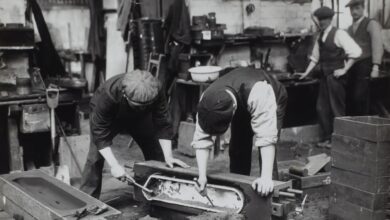Hair Transplant Guide: How to Find the Best Hair Transplant Istanbul

Every single day, literally thousands of people realize that they are experiencing hair loss. When this occurs, the result is typically a slight panic, or perhaps utter despair, depending on the severity of the situation. The first thing that comes to mind once the initial shock has subsided is something that can be done to stop the loss of hair or maybe get their hair back. To address their newly discovered issue, a significant number of individuals may seek treatment through hair transplant surgery. The first question that they attempt to answer is, “Which hair transplant surgeon is considered to be the most skilled?”
Read More: 5 Tips for care of thinning hair and hair loss
Here we will explain the importance of maintaining hair health and specifically highlight hair transplantation as a vital component in preserving or enhancing one’s appearance to look younger and more attractive. Veraclinic is mentioned as a clinic that specializes not only in hair transplantation but also offers a wide range of cosmetic procedures. This suggests that they provide comprehensive services aimed at improving aesthetic appeal, indicating a holistic approach to beauty and self-care. The mention of Veraclinic implies it has a reputation for quality in the field of cosmetic enhancements, making it a potentially desirable choice for individuals looking to maintain or improve their appearance through professional treatments.
Advice to Consider Before Getting a Hair Transplant
If you are looking for an experienced hair transplant surgeon Hair Transplant Istanbul will help you to regain hair beauty. If you want to provide a solution to this topic, you will need to begin with the fundamentals. To begin, you will need to conduct some research to educate yourself about the specific issue of hair loss that you are experiencing. How do you typically experience a loss? Do you feel like a Norwood 3? A Norwood 6 is what you are. Do you know what a “Norwood pattern” is? You may also be experiencing broad thinning of your hair that does not have any discernible pattern, which is not the normal sort of patterned hair loss.
If this is the case, the condition may be not inherited or genetic, but rather what is known as scarring or non-scarring alopecia. You must educate yourself on the different causes of non-patterned hair loss, which include metabolic, nutritional, drug-induced, and autoimmune causes, to name just a few of the many possible causes. If you do suffer from patterned hair loss or androgenetic alopecia (AGA), however, you should be able to use transplanted hair to cover the regions where you have lost hair. Following that, you will need to acquire knowledge regarding the two distinct approaches to donor harvesting to acquire grafts for hair transplantation. These approaches are referred to as FUE and FUT.
FUE
FUE stands for “follicular unit excision”. Individual hair follicle bundles, also known as follicular units, are extracted from the region of your scalp where your hair is permanent. These bundles can include anything from one to four hairs. This procedure is known as hair removal. The “safe donor zone” is the name given to this area. For the technique to be successful, very small cylindrical punches with diameters ranging from 0.7 to 1.0 millimeters are required. The removal of each follicular unit produces a small hole in your skin, which, unless the hair is fully removed, will eventually mend into a scar that is very thin and difficult to see. The sight of the hundreds or even thousands of these microscopic scars is exceedingly difficult to see when the hair is cut short (#2 guard or higher), given that there is a sufficient amount of hair that is still present. It is typically recommended that this operation be performed on male patients who want to have the option of shaving or buzzing their hair in the future, but not to the point where it reaches the scalp. Patients who are quite active and do not wish to protect a donor incision while it is healing are also among those who can benefit from this treatment.
FUT
Full-thickness transplantation (FUT) is the other way of donor harvesting for hair transplants. The acronym “FUT” refers to a “follicular unit transplant…” Although both operations are technically considered to be follicular unit transplant surgeries, the Follicular Unit Transplant (FUT) procedure was the first of the two procedures to be performed, and it was also the one that came up with the moniker. Having the ability to transplant individual natural groupings of hair, which typically range from one to four hairs per follicular unit, was a significant accomplishment when it was originally established. FUT grafts are removed all at once as part of a single long continuous strip of donor tissue, which is the primary distinction between the two procedures. With the use of a surgical scalpel, this strip is extracted from the back and sides of the scalp. High-power microscopes are then used to further refine the strip into individual follicular units after it has been split into thin slivers.
Sutures are used to close the area where the strip was taken, and skilled hair restoration surgeons utilize more advanced procedures that can produce a scar that is almost impossible to see. The FUT incision is positioned in such a way that it removes donor hair from the midst of the best, most dense, and permanent donor hair. In most situations, even short hair is able to effectively disguise the scar. A scar is only present in a single region of the donor scalp when using this method, and in contrast to FUE, the scar is not dispersed across the donor zone in a widespread manner. Both procedures have their advantages and disadvantages; however, if the patient is aware that they would never shave their head below a guard size of three to four over the course of their lifetime, then the FUT technique might be the more suitable option.
When it comes to both types of donor harvesting, there is a wide variety of names dependent on medical device marketing for what are essentially the same methods and approaches. Without a question, these can cause you to become confused, especially if you continue to conduct research and are exposed to marketing that is deceptive and convincing. It would be impossible to cover all of the phrases and descriptions that you may come across in one post due to the enormous volume of them. In addition, we have published an additional article that explores this topic in greater depth and provides a description of the four different types of FUE that you ought to be aware of.
Tips to Find the Best Hair Transplant in Istanbul
When considering a hair transplant in Istanbul, known for its high-quality medical services at competitive prices, it’s essential to go well-prepared. Here are some tips to ensure you have the best experience and outcome:
- Research Clinics and Surgeons: Look for reputable clinics and experienced surgeons in Istanbul. Check their qualifications, reviews, and before-and-after photos of previous patients.
- Understand the Techniques: Familiarize yourself with the different hair transplant techniques (e.g., FUE, FUT, DHI) to discuss with your surgeon what’s best for you.
- Consultation is Key: Have a detailed consultation with your surgeon. Discuss your hair loss pattern, expectations, and any medical conditions that could affect the procedure or its outcome.
- Plan Your Trip: Istanbul is a large city with much to offer. Ensure your accommodation is close to the clinic and consider recovery time when planning your stay.
- Post-Procedure Care: Follow the post-procedure care instructions closely for the best results. This might include medication, washing instructions, and avoiding certain activities.
- Legal and Medical Requirements: Ensure the clinic meets Turkey’s legal and medical standards. Check if they offer a consultation service that includes legal advice on medical tourism.
- Language Barrier: While many doctors and clinic staff in Istanbul speak English, a language barrier might exist. Consider a clinic that offers translator services to ensure clear communication.
- Cost vs. Quality: While seeking the best deal, remember that quality should be your priority. Cheapest isn’t always the best when it comes to medical procedures.
- Aftercare Service: Check if the clinic offers comprehensive aftercare or if you’ll need to see a specialist once you return home.
- Cultural Sensitivity: Be aware of cultural norms and practices in Istanbul to make your visit as smooth as possible, respecting local customs and traditions.
- Recovery Time in Turkey: Take advantage of the recovery time to enjoy Istanbul’s sights and hospitality, but do so in a way that doesn’t compromise your healing process.
- Patient Testimonials and Reviews: Look for testimonials and reviews from previous patients. They can provide insights into their experiences with the clinic and the procedure.
- Accreditation: Check for any international accreditations the clinic may have, such as JCI (Joint Commission International), which can be a marker of quality.
- Emergency Plans: Know the clinic’s emergency procedures and what steps to take in case something doesn’t go as planned.
- Travel Insurance: Make sure your travel insurance covers medical treatments abroad in case of unforeseen complications.
By thoroughly researching and planning your hair transplant trip to Istanbul, you can ensure a positive experience and the best possible outcome for your procedure.
Conclusion
In conclusion, for individuals seeking to preserve or enhance their beauty and youthfulness, Veraclinic in Istanbul stands out as a premier destination. Their expertise extends beyond hair transplants, encompassing a wide array of cosmetic procedures. This comprehensive approach ensures that clients can access a multitude of treatments to meet their aesthetic goals under one roof. With a focus on quality care and advanced techniques, Veraclinic supports individuals in achieving a rejuvenated appearance, making it a top choice for those looking to invest in their beauty and well-being.









